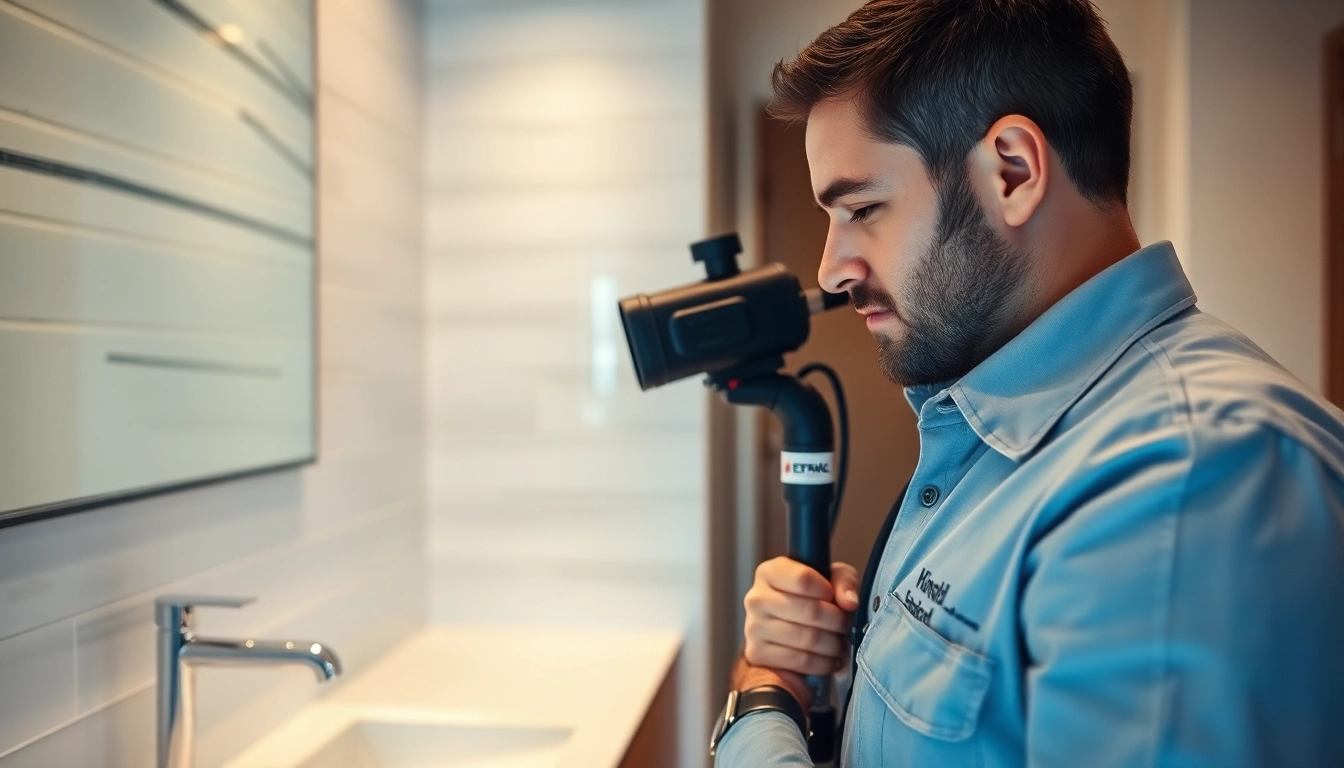Expert Leak Detection Specialist: 5 Proven Strategies for Homeowners

Understanding the Role of a Leak Detection Specialist
What is a Leak Detection Specialist?
A Leak Detection Specialist is a trained professional who specializes in identifying and rectifying leaks in various systems, primarily plumbing. These specialists possess a deep understanding of both the physical and mechanical aspects of how plumbing works, enabling them to detect issues that may not be visible to the untrained eye. Their role is critical in preventing serious water damage to homes and commercial buildings, which can lead to costly repairs and significant disruption.
Why You Need a Leak Detection Specialist
Water leaks can start as minor issues but can escalate rapidly if left untreated. They can compromise the structural integrity of a building, encourage mold growth, and lead to high water bills. Engaging a Leak Detection Specialist allows property owners to identify and address leaks early, minimizing potential damage and ensuring the safety and comfort of the environment. Moreover, professionals use advanced diagnostic techniques that would be difficult for an average homeowner to replicate, thus ensuring more reliability in the detection process.
Common Services Offered by Leak Detection Specialists
Leak detection specialists typically provide a range of services, including:
- Non-invasive leak detection using advanced technology
- Thermal imaging to assess temperature variations
- Acoustic listening devices to hear leak sounds
- Pressure testing to check for leaks in plumbing systems
- Drone inspections for hard-to-reach places
- Consultations and preventive maintenance advice
Identifying Signs of Water Leaks
Visible and Hidden Signs of Water Leaks
Recognizing the early signs of a water leak can save time and money. Visible signs include:
- Water stains on walls or ceilings
- Puddles of water or damp spots
- Warped floors or materials
However, many leaks can be hidden from view. Indicators of hidden leaks might include:
- Unexplained increases in your water bill
- Musty odors in certain areas
- Presence of mold and mildew
How to Perform a Basic Leak Check
Homeowners can perform simple checks to identify potential leaks. Start by inspecting areas prone to leaks, such as under sinks, around toilets, and near appliances like dishwashers and washing machines. One effective method is the water meter check:
- Turn off all taps and appliances that use water.
- Record the water meter reading.
- Wait for a couple of hours without using any water.
- Check the meter again. If the reading has changed, you may have a leak.
Understanding Your Home’s Plumbing System
A comprehensive knowledge of your home’s plumbing layout—where pipes run and what fixtures connect—can significantly enhance your ability to spot leaks early. Familiarize yourself with your plumbing blueprint, which may be available at your local city hall or county office, or you can often create your own based on observable pipe locations and connections.
Technologies Used by Leak Detection Specialists
Advanced Tools for Leak Detection
Leak detection specialists utilize a variety of cutting-edge tools to accurately locate leaks without invasive procedures. These tools include:
- Infrared cameras to detect temperature differentials
- Ultrasonic detectors that pick up sound frequencies indicating water flow
- Moisture meters that quantify the presence of moisture in different materials
- Video inspection equipment to evaluate the condition of pipes internally
How Technology Improves Leak Detection Services
The introduction of technology into leak detection has transformed how leaks are identified and repaired. For example, infrared cameras can quickly indicate areas of concern without needing to break open walls or floors, making the process efficient and minimally invasive. This not only saves time on repairs but also minimizes damage, enabling property owners to avoid prolonged disruptions.
Comparing Traditional vs. Modern Detection Methods
Traditional leak detection methods, such as visual inspections and water pressure tests, have their place but often fall short concerning efficiency and accuracy. Modern methods, on the other hand, can pinpoint leak locations much faster, reducing the investigative phase’s duration drastically. Furthermore, the use of sound technology, such as acoustic listens, enhances the probability of locating even the most inconspicuous leaks.
Steps to Take When You Suspect a Leak
Initial Actions Before Calling a Leak Detection Specialist
If you suspect a leak, there are preliminary actions you can take before a specialist arrives:
- Turn off the main water supply to prevent further damage
- Document any visible signs of leaks
- Clear the area around the suspected leak for easier access
How to Document Your Leak Concerns
Thorough documentation can aid the leak detection specialists in their assessment. Take photographs of any visible leak signs, note the timeline of when leaks were first noticed, and keep a record of any increases in your water bill. This information will help the specialists understand the problem better and devise an efficient solution.
Choosing the Right Leak Detection Specialist
Selecting a competent leak detection specialist is crucial for effective leak resolution. Consider the following factors:
- Experience and reputation in the field
- Availability of modern leak detection technology
- Clear communication and customer service
- Positive customer reviews and testimonials
Long-Term Solutions and Preventive Maintenance
Understanding the Cause of Leaks
To prevent future leaks, it is important to understand their root causes. Common causes include:
- Corroded pipes due to age or water quality
- Improperly installed fixtures and appliances
- Environmental factors such as ground movement or extreme weather
Addressing these fundamental issues can significantly mitigate the risk of leaks developing in the future.
Regular Maintenance Tips to Prevent Leaks
Implementing regular plumbing maintenance can catch potential leaks before they escalate:
- Schedule routine inspections by a professional
- Regularly check water pressure and make adjustments as necessary
- Maintain adequate drainage around the foundation of your property
Investing in Professional Leak Detection Services
Investing in the services of a leak detection specialist is key to ensuring the longevity of your plumbing system. Their expertise not only helps in identifying and resolving current leaks but also provides insights into your plumbing infrastructure, promoting a proactive approach to maintenance and leak prevention.






